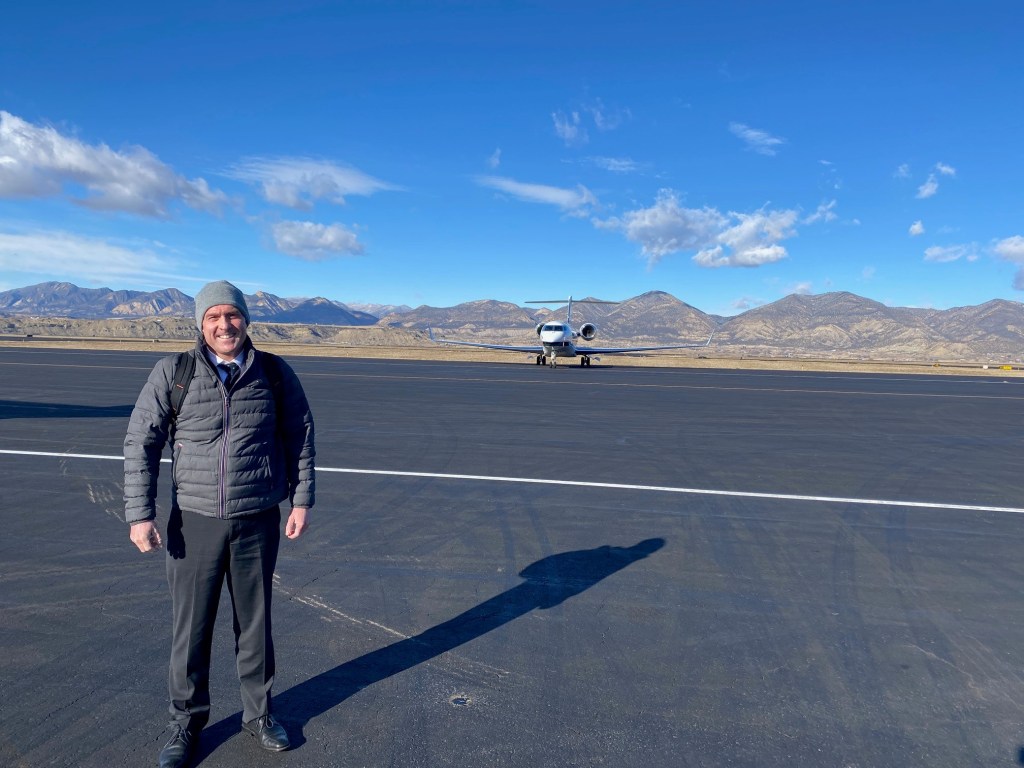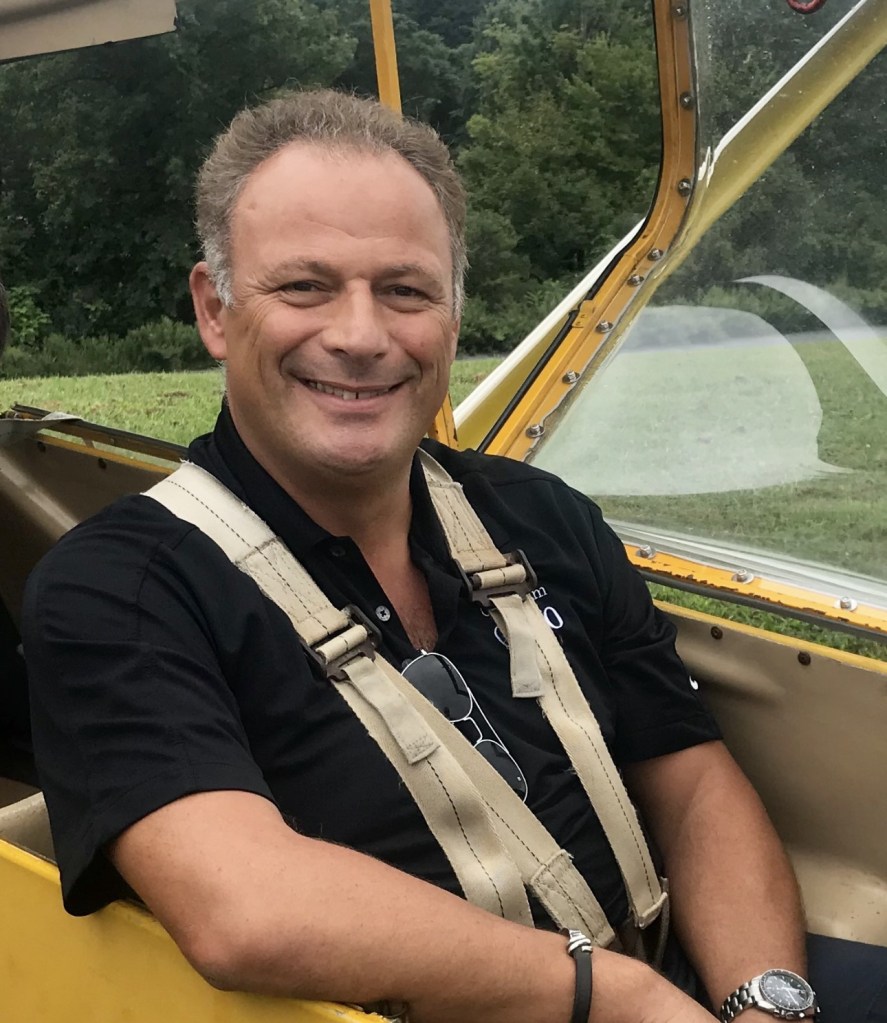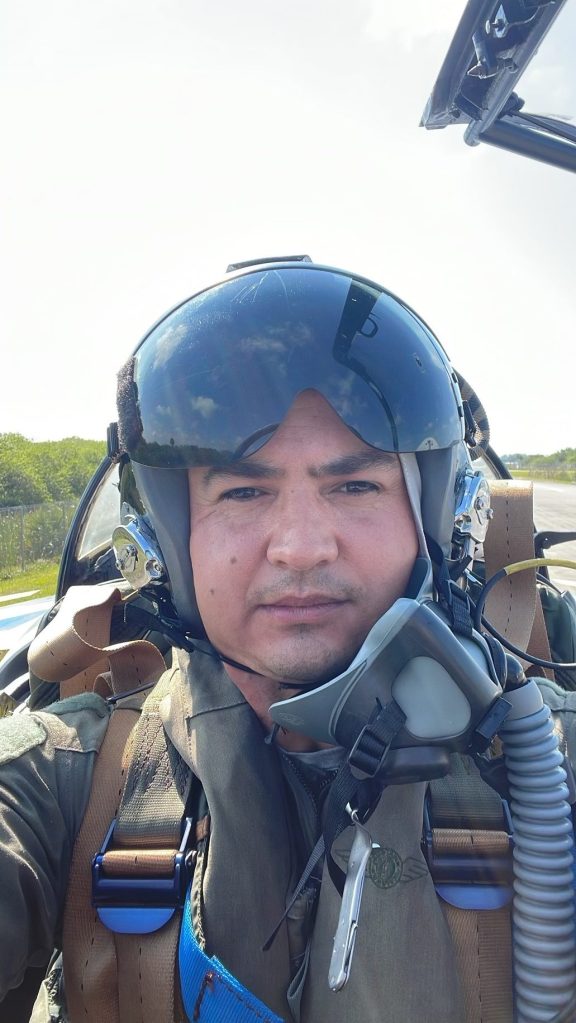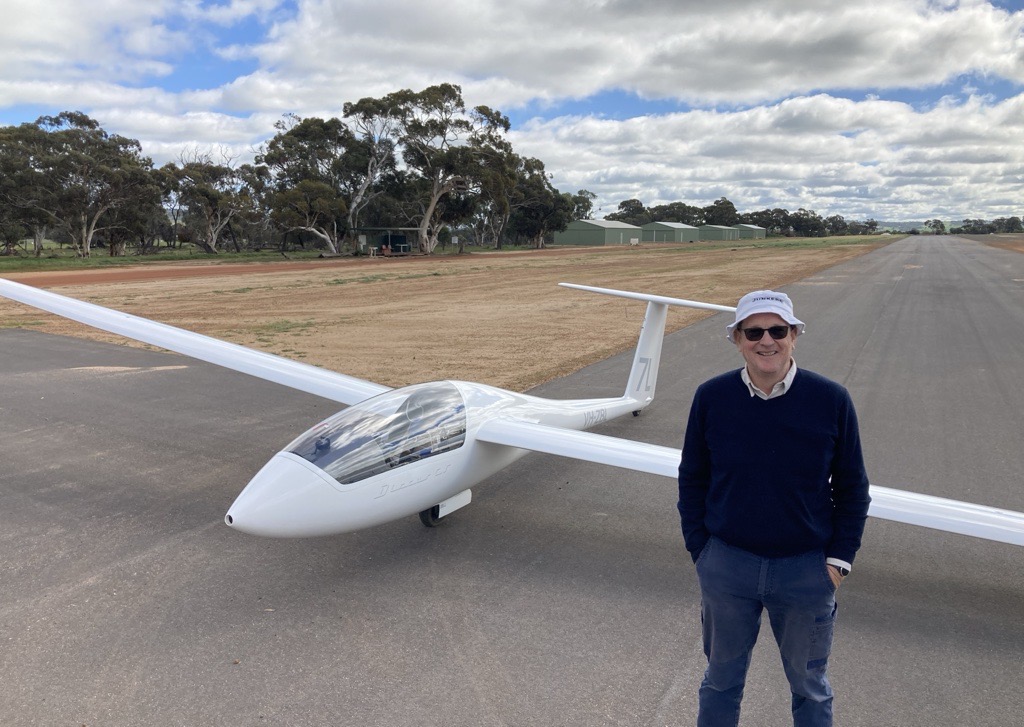Taking to the Skies this World Pilots’ Day

Meet some of our Jet Aviation pilots and discover their incredible journey to flight.
For this year’s World Pilots’ Day, we are stepping inside the cockpit to give you a glimpse of life as a Jet Aviation pilot. We spoke to Michael Bolli, Captain and Nominated Person Crew Training, Arnaud Bourgeois, Captain, Manuel Rivas, Captain, and Andrew Edwards, Chief Pilot in Defence, who told us more.
Can you tell us a bit about yourself and how long you have been a pilot?
Michael: My name is Michael Bolli, I’m 48 years old, I’m married to a wonderful woman, I have a daughter, and I’ve now been a pilot for 25 years.
Arnaud: I was born in France and moved to Connecticut in 1988. I started my career in 1991 as a flight instructor in Florida, then flew a Boeing 737 for a few years in Asia and Africa. I began my career in business aviation flying a Gulfstream 2, then a G3/G4 and finally, for the last 11 years, a Gulfstream 650.
Manuel: I’ve been a passionate aviator since 1998 and my career has spanned 26 years. I flew on an airline for eight years and then switched to corporate business aviation.
Andrew: I grew up in northern New South Wales, Australia, in a town called Grafton. Growing up, I had always been interested in outdoor activities, whether it be sailing, bike riding, bush walking, or just exploring in general. It was roughly the age of 15 when I started taking an interest in flying, particularly gliding. I soon began to save up my money that I was earning as a newspaper delivery boy. I got to learn the ropes of gliding for about 12 months, before my family and I packed up and moved to Melbourne, which is when I unfortunately had to stop flying for a bit.
It was this time as well that I began to develop an interest in naval architecture and aeronautical engineering, mainly from reading a lot of magazines growing up, and after finishing school, I pursued a degree in aeronautical engineering.
I’ve now been flying for the past 45 years, but professionally I’ve been doing it since 1989, so 35 years. I’m also married with three children. Our youngest son is just finishing high school and he’s looking to pursue a mechanical engineering degree.
What motivated you to pursue a career as a pilot? What was your journey into this career?
Michael: The reason I decided to become a pilot is because I had a dream of flying airplanes but also, I wanted to discover and get to know new countries across the world. I spent seven years with Crossair and Swiss, and then continued my journey as a pilot in business aviation, flying for different owners and families as well as charter aircraft.
Arnaud: My father passed on his love of aviation to me from an early age. As a former French Air Force pilot on the Mirage III, he concluded his career with Air France on the Airbus 330.
The aviation world has evolved in a very short space of time. Between my father, who learned to fly on a wooden biplane, flew at twice the speed of sound in the Air Force, and completed his career onboard a fly by wire commercial aircraft carrying 300 people, and myself, who has witnessed the incredible growth of business aviation over the last 25 years, the world of aviation has truly transformed.
Manuel: To have the ability to go and explore new places around the world and to enjoy different cultures.
Andrew: I had always been interested in aircraft and engineering, so I pursued a degree in aeronautical engineering. At the same time, I worked as a stage manager as a side job for the theatre at university – to such an extent that I took it on as a full-time job for a bit, mainly on sound engineering. During that time, I was also saving up money to sit for my flying lessons and pilot’s exam. I was missing flying, so decided to learn how to fly and took it seriously.
I got my first job in 1989 after spending three weeks travelling from Brisbane to Melbourne, then across the length of Australia. I ended up in Derby, Western Australia, where I got a job flying aircraft for mining explorations such as surveying and mineral mapping. After 10 years, I moved to the Royal Flying Doctor Service in Broken Hill, Melbourne, where I also ended up meeting my wife, who was a nurse. After some time there, I then moved to a corporate organization flying back to Kimberly, then moved over to Jet Aviation.
“Between my father, who learned to fly on a wooden biplane, flew at twice the speed of sound in the Air Force, and completed his career onboard a fly by wire commercial aircraft carrying 300 people, and myself, who has witnessed the incredible growth of business aviation over the last 25 years, the world of aviation has truly transformed.”
What skills do you need to master to become a pilot?
Michael: In order to be a pilot, I would say that there are a combination of skills you would need to master. This could be technical, practical and cognitive skills.
Manuel: First of all, you have to be passionate about flying, and then there are three skills that help you succeed at everything in life which is: order, discipline, and cleanliness.
Andrew: Both physical and spatial intelligence, along with a decent understanding of mathematics and physics. I would say you don’t need a solid engineering skill level, but it does help, but being able to recognize signs of trouble early on is a critical skill. You need to learn to be quick. You also must be passionate about it and love it, as it can often be a tough industry. On top of that, adaptability is another key skill, as so many hurdles can get thrown your way, so learning to roll with it can often make or break pilots.
What are the main challenges of the role?
Michael: You can be confronted with many challenges in general aviation. This could be preparation for an unknown airfield or country, for example. But for that, we can rely on a very good team of specialists in our offices with Dispatch, Flight Operations, Training, Security, and much more.
Manuel: You will face a lot but never give up!
Andrew: Learning to fly can be expensive and it’s something to consider. These days there are various sponsored support schemes, but there are also ancillary costs that pop up now and again.
Reflecting on your career as a pilot, is there a particular flight, milestone, or moment that was significant or memorable?
Michael: I would say, reflecting on my career as a pilot, there were several interesting trips that I have done to countries and places in general that have been memorable, as many of them have not been visited by someone or even on their list of destinations.
Manuel: For me, it was when I became a Captain for the airlines I flew with and was able to take my family on flights with me.
Andrew: I have two significant journeys that come to mind. The first was when I had to complete an emergency midnight trip to Shepperton to rescue a premature baby for the Royal Flying Doctors. This flight was particularly challenging given the seriousness of the patient on board, but it also happened to be the flight I would meet my future wife on, as she was working as a nurse on the same flight.
My second was when I had to complete an international flight from the United Kingdom back to Australia in a single engine Cessna 207. The journey took 10 days to complete with multiple stops.
What about being pilot has changed significantly since you first started out?
Michael: Looking back, many aspects have changed since I first started my career. I would say the cockpit layout has revolutionized with the introduction of new instruments, to new glass cockpits and fly by wire technology.
Arnaud Bourgeois: Who would have thought 60 years ago that our passengers would be concerned with connectivity at 45,000 feet when they are flying just under the speed of sound!
Manuel Rivas: I’ve certainly seen significant changes in the aviation industry since I started flying, particularly with advances in aircraft technology, navigation systems, communication, automation, training and simulation, as well as safety measures.
Overall, these changes have significantly impacted the way pilots operate and interact with aircraft, leading to a safer, more efficient and technologically advanced aviation industry.
Andrew: GPS has improved. The trip from UK to Australia that I mentioned earlier was plotted using maps and compass, so real old-school navigational techniques. Same with the cockpit in modern aircraft, which now show so much more information on TV screens. I also think it’s become so much safer, especially with improvements to Air Traffic Control, who can now track you more accurately, which adds a level of safety, such as speed and collision prevention. Flight planning has also improved dramatically. Back when I first started out, it would involve plotting points on a map to match range and weather conditions, but now there’s an app that can be used and it does it all for you! Weather has gotten much better to predict as well and is even free. Again, when I started flying out, some places required you to pay for weather charting.
What advice would you give to someone interested in pursuing a career as a pilot?
Michael: I would recommend being adaptable but also flexible, start early and do your research. As well as that, choose a reputable flight school, join an airline and build up your flight experience from there.
Manuel: The valuable advice I would give to someone who wants to pursue a career as a pilot is to do thorough research, commit to training, stay focused and motivated, as well as build a solid foundation. I would also say to stay up to date and continuously learn, network and seek out mentors, develop strong communication skills, put safety first, be flexible and adaptable. And most of all, have a passion for flying.
Andrew: Hard to say as generationally it’s so different from when I started, but having enthusiasm for the job is key, but also to follow what interests you. Being able to find the niche qualifications can often be a drawing card for some, as it can often lead to jobs. Be open to all opportunities, follow the path lest travelled, carve your own path and be adventurous.
On a personal note, what do you enjoy doing in life outside the cockpit?
Michael: When I am not flying, I enjoy bike rides, swimming, running, riding my motorcycle and simply just enjoying life during my time off with my family.
Arnaud: I love spending time on the Mystic CT coast with my family and beloved dogs. The art of cooking and the science of oenology means we spend a lot of time in the kitchen preparing our catch of the day or enjoying local oysters.
For fun, I applied for a famous TV show, Master Chef, a few years ago, and ended up being a contestant. Sadly, I overcooked my scallops and was eliminated after my first TV appearance!
I’m also a volunteer firefighter at the Mystic Fire Department.
Manuel: I love exploring the world of literature and immersing myself in a good book of different genres. Exploring nature is another of my passions. Whether it’s taking a leisurely stroll along scenic trails, embarking on outdoor adventures like hiking and camping, or simply basking in the tranquility of a serene landscape, I find immense joy and rejuvenation in connecting with the natural world.
I enjoy spending quality time with friends and loved ones, whether it’s engaging in meaningful conversations, sharing laughter and good food, or simply enjoying each other’s company. Building and nurturing relationships with those around me is the cornerstone of my life outside the cockpit.
Andrew: Ironically, I enjoy life in the cockpit. In my off time I spend my time flying gliders, and even work as an instructor for air force cadets. I own a two-seat glider and I also spend time as an instructor at a flight school in Goulburn.
Is there anything you would like to add?
Michael: Carpe Diem
Arnaud: Don’t look back and enjoy every day!
Manuel: Follow your dreams and never stop. I hope this reference can inspire younger men and women to become great aviators. I wish all the best.
Andrew: If you’re thinking of pursuing something, just go for it. That’s it, whether it be in aviation or not, just going for it and giving it a good honest try. Often, you’ll come to surprise yourself with your capabilities.



